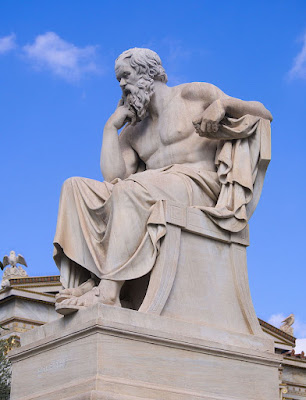Note: This blog post quotes from some historical documents, which contain words that would now be considered offensive. These words are only in quotation, and do not represent the views of this blog.
Did the Greeks and Romans influence the Founding Fathers? Personally, I believe that they did indeed do so, but I should nonetheless first acknowledge the only contrary quotation that I have yet found. Specifically, in 1782, Alexander Hamilton wrote that “We may preach till we are tired of the theme, the necessity of disinterestedness in republics, without making a single proselyte. The virtuous declaimer will neither persuade himself nor any other person to be content with a double mess of porridge,* instead of a reasonable stipend for his services. We might as soon reconcile ourselves to the Spartan community of goods and wives, to their iron coin, their long beards, or their black broth. There is a total dissimulation in the circumstances, as well as the manners, of society among us; and it is as ridiculous to seek for models in the simple ages of Greece and Rome, as it would be to go in quest of them among the Hottentots [his word, not mine] and Laplanders.” (Source: His writing entitled “The Continentalist No. VI, 4 July 1782”) As Wikipedia informs us, Hamilton’s chosen term of “Hottentots” (again, his word, not mine) was once used to refer to a particular tribe in South Africa, but the term is now considered a little offensive. By contrast, the term “Laplanders” refers to a group in Northeastern Europe, located in and around Finland. Thus, Alexander Hamilton thought it “as ridiculous to seek for models in the simple ages of Greece and Rome” as it was to “go in quest of them” among these other groups.
Alexander Hamilton
The Roman Republic attained to the “utmost height” of human greatness
However, in the Federalist Papers, Alexander Hamilton would later write that “the Roman republic attained to the utmost height of human greatness.” (See the quotation at the beginning of this link for the details.) Thus, Alexander Hamilton still had some admiration for the “simple ages of Greece and Rome” (as he had earlier put it), even if he had some reservations about “seek[ing] for models” among them. What evidence exists, then, that the Ancient Greeks and Romans did indeed influence the Founding Fathers? In this blog post, I will try to answer this question. As I will show here, the evidence is massive, and shows that the Founding Fathers gratefully acknowledged their debt to both Greek and Roman society.
Greek philosopher Socrates





















